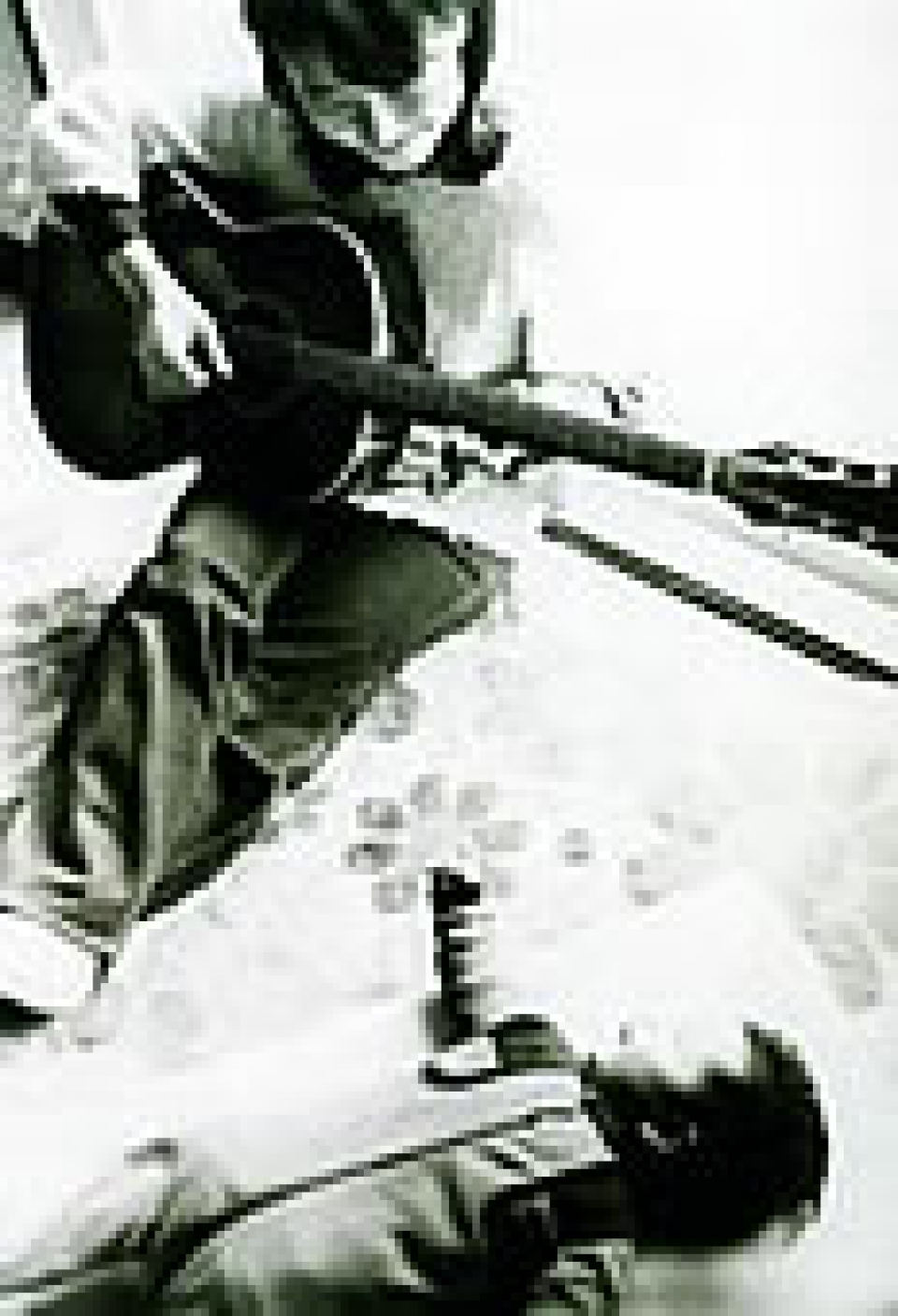Birth 生まれる

午前8時、予定より1ヶ月もはやくドアをノックした。中国大陸東北部、ハルビン市。
1943年12月27日正午、2400グラム程の未熟児が誕生した。1才8ヶ月で終戦。半年の収容所生活の後、2歳8ヶ月で引き揚げ。無蓋貨物列車の旅。玄界灘をわたり佐世保へ上陸。記憶のない遠い旅。
生まれた街を知らずに育った子供は、生まれた街を夢に見た。父や母の失われた過去の追憶の中でその夢に色をつけた。
石畳、そりを引く馬車、悠々とした大河スンガリー、コーリャン畑、ジプシー音楽。
亡命貴族たちのうたかた、貧しさと誇り。
帰りつく街を持たない人の群。
人々はその時、鳥のように自由で、守るものは何ひとつ持っていない。
自分の歴史をつなぎとめるものは自分の思い出だけ。遠い街で生まれた子供にとって生きるとはそういうことだった。
1972年12月はじめての娘が生まれた。
母親の胎内で何億年もの歴史をくぐりぬけて生まれてきたのか。お前は哲学者のような顔をしている。うぶな母が何も知らなくても大丈夫。
赤ん坊ははじめから生きることを知っている。
哭く、笑う、怒る、乳を飲む、あくびをする、おしっこをする。
人間もまた花や草と同じ。
太陽の中でただひたすら生きようとする。
1943年12月27日正午、2400グラム程の未熟児が誕生した。1才8ヶ月で終戦。半年の収容所生活の後、2歳8ヶ月で引き揚げ。無蓋貨物列車の旅。玄界灘をわたり佐世保へ上陸。記憶のない遠い旅。
生まれた街を知らずに育った子供は、生まれた街を夢に見た。父や母の失われた過去の追憶の中でその夢に色をつけた。
石畳、そりを引く馬車、悠々とした大河スンガリー、コーリャン畑、ジプシー音楽。
亡命貴族たちのうたかた、貧しさと誇り。
帰りつく街を持たない人の群。
人々はその時、鳥のように自由で、守るものは何ひとつ持っていない。
自分の歴史をつなぎとめるものは自分の思い出だけ。遠い街で生まれた子供にとって生きるとはそういうことだった。
1972年12月はじめての娘が生まれた。
母親の胎内で何億年もの歴史をくぐりぬけて生まれてきたのか。お前は哲学者のような顔をしている。うぶな母が何も知らなくても大丈夫。
赤ん坊ははじめから生きることを知っている。
哭く、笑う、怒る、乳を飲む、あくびをする、おしっこをする。
人間もまた花や草と同じ。
太陽の中でただひたすら生きようとする。
At 8 o’clock in the morning I knocked on the door, a month before I was expected.
That was in HARBIN, in the northeastern part of China.
At noon, on December 27 in 1943, a premature baby was born weighing 2,400g.
I was one year and 8 months old when WWII ended. We stayed in a concentration camp for one year. We left when I was 2 years and 8 months old, traveling on a flatcar, crossing the Genkai-nada, and landing in Sasebo. The journey is lost further back in my memory.
The child grew up without knowing her birthplace, but would see the town in her dreams. She colored the dream with her parents’ recollections of the town.
Cobblestone streets, carriages pulling sleighs, the broad peaceful flow of the River Sungary, fields of kaoliang, and gypsy music.
Exiled aristocrats, transient and poor, but proud.
Flocks of people having no home to return to.
Everyone was so free, like birds, with nothing to grasp.
Memory as one’s only link to one’s history.
To a child born in a far-off town, this was all life was.
In December 1972 my first daughter was born.
You might have been born after a journey through millions of years of history in my womb:
You looked just like a philosopher.
There is nothing to worry about for a young innocent mother. A baby knows how to live.
It cries, laughs, gets angry, breast feeds, yawns and pees.
Human beings are the same as flowers and grasses. They solely strive for life in the sun.
That was in HARBIN, in the northeastern part of China.
At noon, on December 27 in 1943, a premature baby was born weighing 2,400g.
I was one year and 8 months old when WWII ended. We stayed in a concentration camp for one year. We left when I was 2 years and 8 months old, traveling on a flatcar, crossing the Genkai-nada, and landing in Sasebo. The journey is lost further back in my memory.
The child grew up without knowing her birthplace, but would see the town in her dreams. She colored the dream with her parents’ recollections of the town.
Cobblestone streets, carriages pulling sleighs, the broad peaceful flow of the River Sungary, fields of kaoliang, and gypsy music.
Exiled aristocrats, transient and poor, but proud.
Flocks of people having no home to return to.
Everyone was so free, like birds, with nothing to grasp.
Memory as one’s only link to one’s history.
To a child born in a far-off town, this was all life was.
In December 1972 my first daughter was born.
You might have been born after a journey through millions of years of history in my womb:
You looked just like a philosopher.
There is nothing to worry about for a young innocent mother. A baby knows how to live.
It cries, laughs, gets angry, breast feeds, yawns and pees.
Human beings are the same as flowers and grasses. They solely strive for life in the sun.

